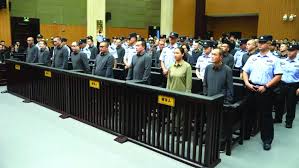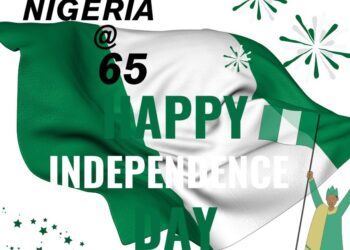France and Saudi Arabia are set to convene dozens of world leaders on Monday to rally support for a two-state solution for Palestine.
Many of the world leaders are expected to formally recognise a Palestinian state, a move that could draw harsh Israeli and U.S. responses.
Britain, Canada, Australia and Portugal all recognised a Palestinian state on Sunday while France and five other states are expected to also formally recognise a Palestinian state on Monday.
While the summit could boost the morale of Palestinians, it is not expected to deliver change on the ground, where the most far-right government in Israel’s history has declared there will be no Palestinian state as it pushes on with its war against Hamas in Gaza.
Efforts to create a two-state solution have failed to make any progress for decades as violence raged.
Israel and the United States will boycott the summit, Israel’s UN Ambassador Danny Danon, said, describing the event as a “circus.”
However, not all European powers will follow suit. Italy said such a move could be “counterproductive”, while Germany said it could undermine efforts to reach a negotiated two-state solution with Israel.
Israel officials said Israel is considering annexing part of the occupied West Bank as a possible response as well as specific bilateral measures against Paris, even though the recognitions are expected to be largely symbolic.
Annexation could backfire and alienate key countries like the United Arab Emirates, a global oil power and trade hub with wide diplomatic clout across the Middle East.
The United Arab Emirates, the most prominent of the Arab states that normalised ties with Israel under the U.S.-brokered Abraham Accords in 2020, has said such a move would undermine the spirit of the agreement.
Lana Nusseibeh, minister of state at the UAE foreign affairs ministry, told the BBC “that is why we came on record saying that annexation is a red line for my Government because it strikes at the very heart of what the Abraham Accords were meant to achieve.”
Norway’s Foreign Minister Espen Barth Eide was cautious about the latest statehood recognition; however, Norway recognised a Palestinian state jointly with Spain and Ireland in 2024.
“Palestine is at a turning point, and we are at a crossroads. While international political support for a two-state solution has rarely been stronger, the situation on the ground is worse than ever,” said Eide.
The U.S. administration has also warned of possible consequences for those who take measures against Israel, including against France, whose president, Emmanuel Macron, is hosting the New York summit.
The summit, ahead of this week’s United Nations General Assembly, follows Israel’s launch of a long-threatened ground assault on Gaza City with few prospects for a ceasefire two years after Palestinian Islamist militants Hamas attacked Israel, triggering the war in the Palestinian enclave.
French Foreign Minister Jean-Noel Barrot told television channel TF1 that amid Israel’s intensified Gaza offensive and escalating violence by Israeli settlers in the West Bank, there is a growing sense of urgency to act now before the idea of a two-state solution vanishes forever.
“The decision that the President of the Republic will present this afternoon to the United Nations General Assembly is a symbolic, immediate, political decision that demonstrates France’s commitment to the two-state solution.’’
Barrot added that the recognition of a Palestinian state is a rejection of Hamas and calls for its exclusion from any future role in the governance of Gaza.
France has driven the move, hoping that Macron’s announcement in July that he would recognise a Palestinian state would give greater momentum to a movement hitherto dominated by smaller nations that are generally more critical of Israel.
Some have said there would be conditions and others have said normalisation of diplomatic ties would be phased and dependent on how the Palestinian Authority advances in its promises to reform.
In Gaza, Palestinians were fleeing Israeli attacks on Gaza City on Sunday.
A displaced Palestinian Nabeel Jaber said “even if countries such as Australia, Canada, and France who are now among those initiating this recognition acknowledge Palestine, I believe there will still be no serious pressure on Israel to grant the Palestinians their rights.’’
Israel has said it has no confidence in the 89-year-old Palestinian President Mahmoud Abbas keeping pledges to reform and modernise as outlined in a letter to Macron earlier this year.
Abbas and dozens of Palestinian officials will not be there in person. The U.S., a staunch Israeli ally, refused to issue visas and Abbas is due to appear via video.
Saudi Crown Prince Mohammed bin Salman is not attending despite co-hosting the event. The General Assembly agreed on Friday by consensus, without a vote that he could appear via video at Monday’s meeting.






































